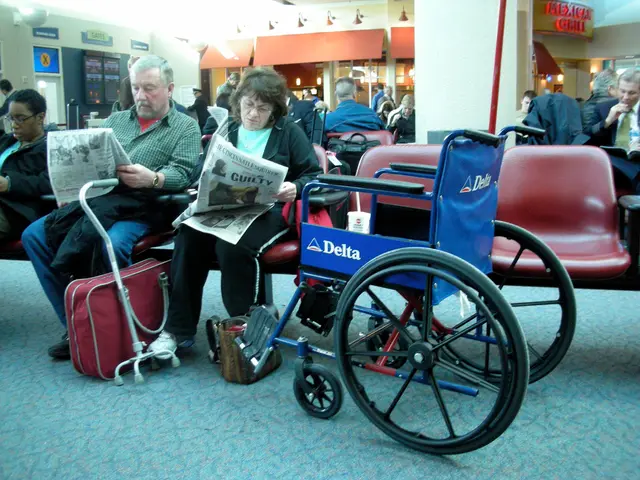Struggling Survivors in Kashmir's Border Regions Dealing with Daily Hardships
In the Heart of the Conflict: The Brutal Reality of Civilians in Kashmir
It was a week that brought terror and devastation to Salamabad as mortar bombs rained down, taking the lives of 38 men, women, and children. Naseem, a 34-year-old hotel chef, was one of the survivors who huddled in a bunker along with others as about a dozen shells exploded outside in rapid succession. One of the shells destroyed Naseem's home.
"Many of us would have died had we not moved into the bunker," Naseem shared with AFP. "We grabbed our children and rushed inside. It got so packed that after some time we felt suffocated, two of our children became unconscious."
The journey was far from over as civilians fled to safer areas, seeking refuge in towns like Baramulla, about 50 kilometers away. In Uri, where constant explosions left a trail of destruction, about 10 percent of the population — some 22,000 people — were forced to flee since the fighting began.
According to Sajjad Shafi, a local lawmaker, the displacement has been devastating, as many families have been left homeless and struggling to find food and work. Displaced people are now sheltering in government buildings in Uri, trying to pick up the pieces amidst the chaos.
Mohammad Lateef Bhat, a road construction worker, said, "I work as a laborer with army's border roads organization but their work also stopped," leaving many like him with no income to support their families.
As tensions rise and lives hang in the balance, the need for protection and stability becomes a pressing concern. Nagni, a mixed settlement of Muslims, Hindus, and Sikhs, has seen 35 of its 50 families flee due to the violence. Local residents like Sahil Kumar express their frustration, stating, "We are fed up."
Farooq Ahmed Khan, a bus driver, expresses a desire for a decisive resolution to the conflict, stating, "I say there should be a war just to decide where Kashmir goes." As the death toll continues to climb, it's clear that the people of Kashmir are caught in the crossfire of a dispute that far surpasses them, leaving their lives and livelihoods in jeopardy.
© 2025 AFP
Insights:- The ongoing conflict between India and Pakistan in Kashmir continues to endanger the lives of innocent civilians, forcing them to flee their homes and seek refuge in safer areas.- The displacement has led to a significant humanitarian crisis, leaving many families impoverished and struggling to find food, shelter, and work in Uri and neighboring villages.- The destruction of residential buildings and essential infrastructure has also caused economic devastation, disrupting normal economic activity and halting commercial activity in affected areas.- The prolonged instability has threatened both human security and economic stability in border communities, making emergency responders' efforts more challenging amidst the continuous hostilities along the Line of Control.
- The conflict in Kashmir, a region between India and Pakistan, has left dozens of civilians dead and hundreds more displaced, seeking safer refuge on slopes and in towns like Baramulla.
- The displacement has created a general-news story of a humanitarian crisis, with families struggling to find food, shelter, and work, as well as facing unemployment in crime-and-justice sectors such as construction.
- Among these displaced individuals is Naseem, a 34-year-old hotel chef who survived the bombing but lost his home, sharing his experiences of the suffocating conditions in bunkers during attacks.
- The ongoing violence and instability cause concerns for the overall safety and security of border communities like Nagni, where many residents have been forced to flee due to the conflict.







